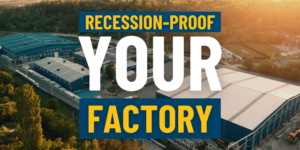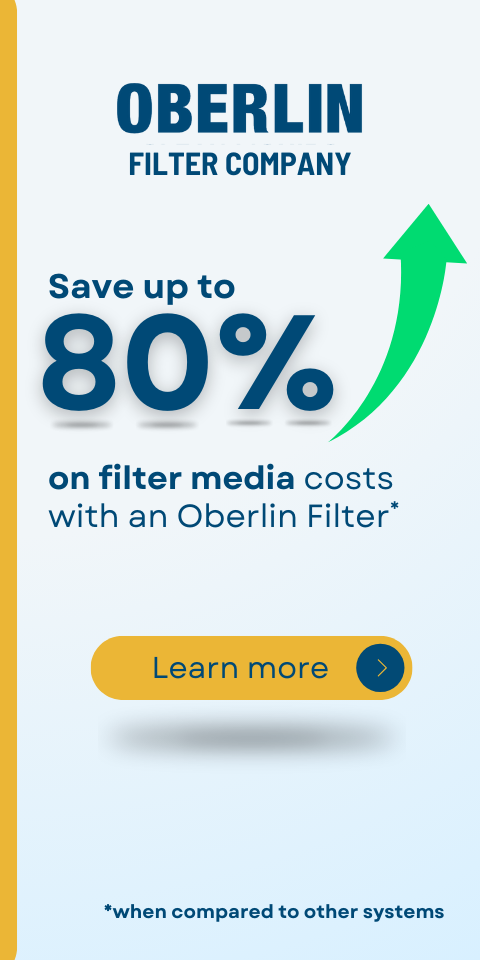Frequently Asked Questions
Can filter automation upgrade be done in-house?
The filter automation upgrade can typically be done in-house with the support of Oberlin Filter Company's experienced team, ensuring a seamless integration and optimization of the automated filtration system to meet the specific needs of the facility.
Can an automated filtration system be customized?
Yes, Oberlin Filter Company's automated filtration systems can be customized to meet the specific needs of each industry and application. Their solutions are designed with flexibility in mind to optimize operational efficiency and address unique challenges.
Is filter automation upgrade a one-time process?
The filter automation upgrade is an ongoing process that evolves with changing industry requirements and technological advancements to maintain optimal performance and efficiency.
What are the key components of filter automation upgrade?
The key components of a filter automation upgrade include advanced sensors, programmable logic controllers (PLCs), and centralized control systems that enable real-time monitoring, automated filter cleaning, and remote system management to optimize operational efficiency.
What triggers the need for filter automation upgrade?
The need for filter automation upgrade is triggered by labor shortages in manufacturing, as automated filtration systems can enhance operational efficiency and reduce manual interventions.
What are the common challenges in filter automation upgrade?
The common challenges in filter automation upgrade include integration of new systems with existing infrastructure, ensuring seamless transition without disrupting ongoing operations, and the need for specialized technical expertise to configure and maintain the automated systems.
What is an automated filtration system used for?
Automated filtration systems are used to enhance operational efficiency by reducing manual interventions, improving product quality, and increasing overall productivity, particularly in industries facing labor shortages.
Is an automated filtration system suitable for industrial use?
Automated filtration systems are well-suited for industrial use, as they can optimize operations by reducing manual intervention, enhancing product quality, and increasing efficiency, which is particularly beneficial in addressing labor shortages in manufacturing.
How does filter automation upgrade improve system efficiency?
Filter automation upgrades improve system efficiency by reducing manual interventions, enhancing product quality, and increasing overall operational productivity.
What are the benefits of using an automated filtration system?
The benefits of using an automated filtration system include reduced manual interventions, enhanced product quality, and increased operational efficiency, helping manufacturers overcome labor shortages.
How does an automated filtration system improve water quality?
Automated filtration systems enhance water quality by consistently removing contaminants with reduced manual intervention, ensuring consistent performance and improved efficiency in water treatment processes.
What are the benefits of filter automation upgrade?
The benefits of filter automation upgrade include reduced manual labor, enhanced product quality, and increased operational efficiency by minimizing human intervention.
What factors influence filter automation upgrade decisions?
The key factors that influence filter automation upgrade decisions include labor shortages, the need to enhance operational efficiency, and the desire to improve product quality by reducing manual interventions.
How can we assess filter automation upgrade costs?
Assessing the costs of upgrading to filter automation involves evaluating factors such as the current system's operational expenses, labor requirements, and potential productivity gains from automation. Consulting with Oberlin Filter Company's experts can provide a comprehensive cost analysis to determine the optimal automation solution.
What industries benefit most from automated filtration systems?
Automated filtration systems are highly beneficial for industries facing labor shortages, such as manufacturing, chemical processing, and industrial wastewater treatment, as they reduce manual interventions and enhance operational efficiency.
What maintenance is required for automated filtration systems?
The maintenance required for automated filtration systems includes regular monitoring of system performance, scheduled cleaning and replacement of filters, and periodic inspection of mechanical components to ensure optimal efficiency and extended system lifespan.
How does automation affect filtration system reliability?
Automation enhances the reliability of filtration systems by reducing the risk of human error, ensuring consistent performance, and minimizing the need for manual interventions, thereby improving operational efficiency and product quality.
What technologies enhance automated filtration system performance?
Automated filtration systems utilize advanced technologies like sensors, programmable logic controllers, and variable frequency drives to enhance performance by precisely controlling pressure, flow, and backwash cycles for improved efficiency and product quality.
What are the latest trends in filter automation?
The latest trends in filter automation include increased adoption of smart sensors, predictive maintenance, and integrated control systems to optimize filtration processes and reduce manual interventions.
How can filter automation reduce operational costs?
Filter automation can reduce operational costs by minimizing the need for manual labor, improving product quality, and increasing overall efficiency in the manufacturing process.
What training is needed for filter automation implementation?
The training needed for filter automation implementation involves hands-on operation and maintenance of the automated filtration systems, including proper programming, monitoring, and troubleshooting procedures to ensure optimal performance.
What are the environmental impacts of automated filtration?
The environmental impacts of automated filtration are reduced waste, efficient resource utilization, and lower energy consumption compared to manual filtration processes.
How do automated systems handle varying filtration demands?
Automated filtration systems are designed to adapt to varying filtration demands by automatically adjusting parameters such as flow rate, pressure, and filter media cleaning cycles to maintain consistent performance and efficiency.
What safety measures are essential for filter automation?
The essential safety measures for filter automation include proper equipment guarding, emergency stop mechanisms, sensor-based monitoring systems, and comprehensive operator training to mitigate risks and ensure safe operations.
How can we evaluate the effectiveness of filtration upgrades?
Evaluating the effectiveness of filtration upgrades can be achieved by monitoring key performance indicators such as improved product quality, reduced maintenance, and increased operational efficiency.
What role does data play in filter automation?
Data plays a crucial role in the automation of filters. It allows for real-time monitoring, optimization, and predictive maintenance of the filtration systems, ensuring efficient and reliable operations.
How do automated systems adapt to different contaminants?
Automated filtration systems from Oberlin Filter Company are designed to adapt to various contaminants by employing advanced sensors and control mechanisms that can detect and respond to changes in the composition and characteristics of the fluid being filtered.
What are the long-term benefits of filter automation?
The long-term benefits of filter automation include increased operational efficiency, reduced labor requirements, and improved product quality through consistent and reliable filtration processes.
How can filter automation improve compliance with regulations?
Automated filter systems from Oberlin Filter Company can improve compliance with regulations by providing consistent, reliable, and documented filtration performance that meets industry standards, enabling companies to maintain regulatory compliance with reduced manual oversight.
What innovations are emerging in automated filtration technology?
The innovations emerging in automated filtration technology include advanced sensor-driven controls, self-cleaning mechanisms, and predictive maintenance capabilities to enhance operational efficiency and minimize manual interventions.








